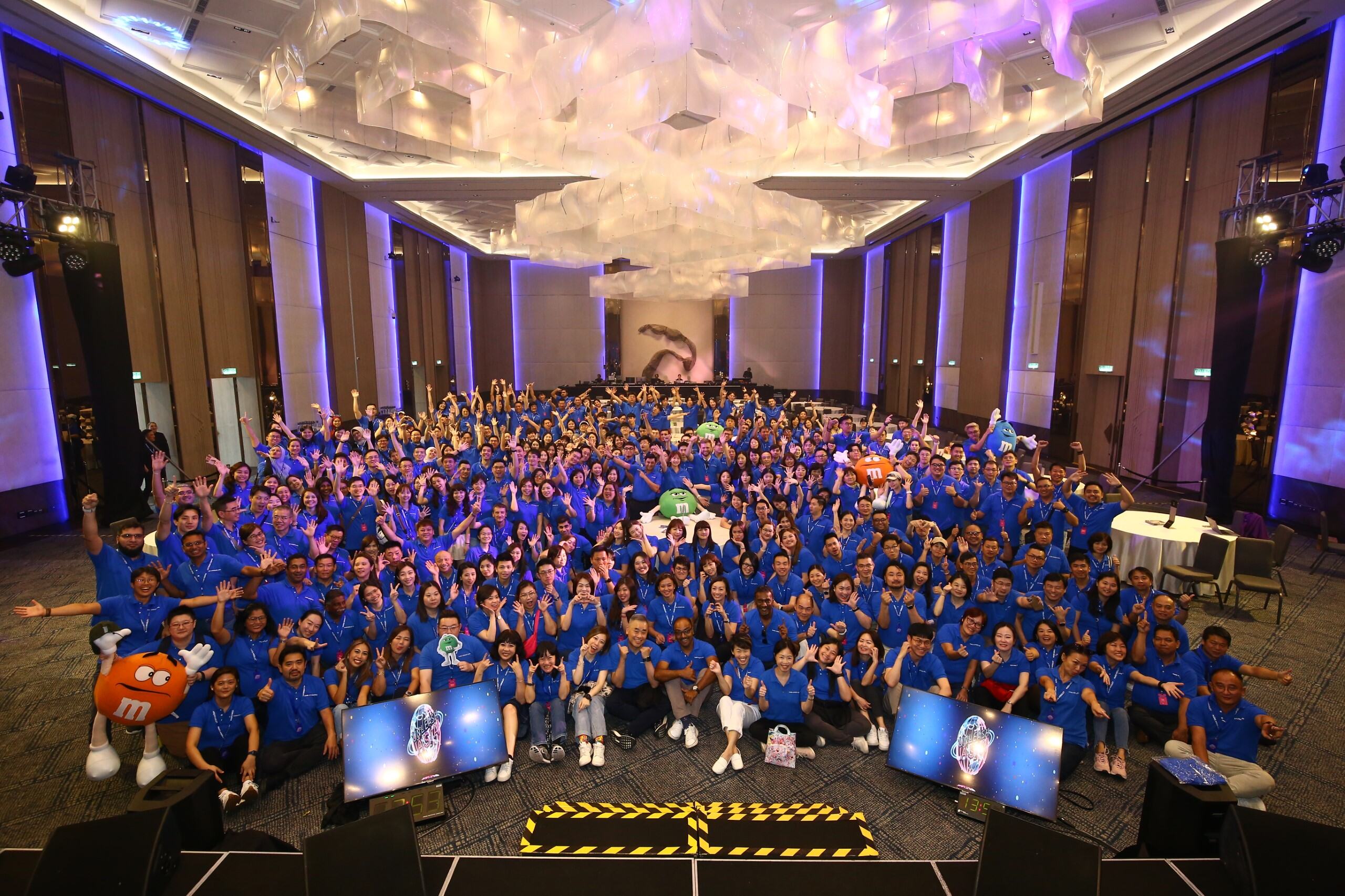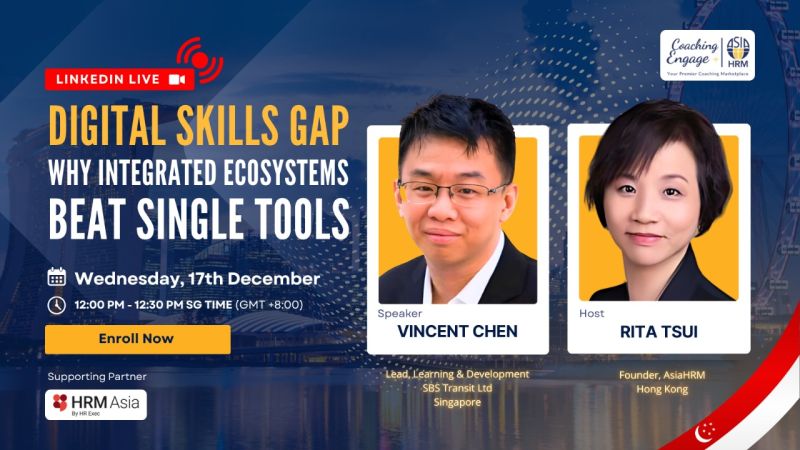Mars Wrigley: Nurturing talent and inspiring happiness globally
- Shawn Liew

Mars Wrigley celebrates its All Associates Day where every Associate plays a vital role in bringing its strategic ambition to life and unleash Asia’s full potential.
The next time you are enjoying a tasty snack produced by Mars Wrigley, you might want to take a step back to ponder the driving forces that is propelling the company to inspire moments of everyday happiness for consumers worldwide.
“We are guided by our Purpose, which is, The world we want tomorrow starts with how we do business today,” Kalpesh Parmar, General Manager, Mars Wrigley Asia, told HRM Asia. “As a privately held and family-owned business, this empowers us to take a long-term perspective, and to think in generations, not quarters. This means we take decisions, innovate, and build for the long run.”
The role Mars’ Associates play in driving success cannot be understated. The fact that their people are referred to Associates as opposed to employees, reflects the meaningful relationship Mars fosters between their business and their people.
This, said Kalpesh, is rooted in their Associate Concept and the five key principles of Quality, Responsibility, Mutuality, Efficiency, and Freedom.
“Our Associate Concept applies to everyone in Mars and goes beyond treating one another fairly and equitably. It’s about respecting and valuing our differences and ensuring that we are heard, appreciated and empowered.”
Taking the example of the mutuality principle, he highlighted that when benefits are mutual, motivations are also shared. “We look through the lens of building win-win relationships that benefit not only our business but also our partners or communities.”
Advocating for Asia and nurturing Asian talent
As GM for Mars Wrigley Asia, Kalpesh oversees business across 20 markets in Asia, including the strategic markets of South Korea, Taiwan, Hong Kong, Malaysia, Thailand, Vietnam, the Philippine, and Indonesia.
Leading a team of more than 500 Associates in this high-growth region for Mars, he continues to be invested in the need to nurture and groom Asian talent. “The majority of our future growth will come from emerging markets, and this should be reflected in our talent and leadership pipeline. Our leadership teams and Associate representation should reflect the race and ethnicities of the markets in which we operate in.”
This “One Asia” lens approach, Kalpesh explained, recognises the diversity of the various cultures in Asia, how local leaders bring diversity of insights and local experiences, and propels the investment in local talent to drive sustainable growth.
At the heart of the “One Asia” lens approach is trust and transparency because it is crucial that Mars Associates feel they can rely on their leaders and that their efforts are genuinely valued.
To align Associates’ goals with the organisation’s, Kalpesh advocates for KPIs that “build, not break.”
He elaborated, “We strive to balance ambition with realism and transparency, and to set KPIs that challenge our teams to strive and unleash their potential, while providing them with a sense of security.”
“We avoid setting ‘all or none’ KPIs, which can discourage teams by risking their incentives. By giving them a safe space, Associates are assured and encouraged to take calculated risks and to push their limits, ultimately driving us to achieve our KPIs and collective goals.”
Another key approach that Mars has embedded into the company culture is that of co-creation, which starts with the process of co-creating strategies with the top 50 leaders, and which is subsequently cascaded to all Asia Associates with an opportunity for dialogue and engagement in a face-to-face setting.
“Rather than a top-down approach, we prefer to involve Associates in the process of co-creation. This brings a sense of shared value and responsibility, reinforcing the same commitment to our goals and objectives,” said Kalpesh.
How succession planning is shaping Mars’ future leadership roles
To prepare employees to take on leadership roles in the future, Mars abides by the leadership philosophy of “no progression without succession,”, which highlights the importance of grooming and nurturing a successor before current leaders progress to the next stage of their career development in Mars.
 “Ultimately, we look to drive sustainable business growth by developing the next generation of talent to become future leaders of the business and to ensure we deliver on our purpose of ‘inspiring moments of everyday happiness’.” – Kalpesh Parmar, General Manager, Mars Wrigley Asia.
“Ultimately, we look to drive sustainable business growth by developing the next generation of talent to become future leaders of the business and to ensure we deliver on our purpose of ‘inspiring moments of everyday happiness’.” – Kalpesh Parmar, General Manager, Mars Wrigley Asia.
“By being intentional in nurturing potential successors, we ensure that our team members can progress successfully to bigger roles that are in line with their aspirations. This not only fosters a culture of continuous learning and development, but also reinforces our belief of developing purpose-driven talent,” explained Kalpesh.
Furthermore, this leadership approach requires a deeper understanding of current roles. As incumbent leaders prepare to mentor their successors, they become more acutely aware of the skills, experience, core competencies and responsibilities necessary to excel in their positions.
“This self-reflection and clarify not only enhances our current performance, but also sharpens our focus and helps us ensure that the quality of output is sustained,” said Kalpesh.
READ MORE: Reframing generational stereotypes to foster a supportive workplace
To further support this, formal programmes such as the Best Next Move framework encourage Associates to think about where and how they want to grow from their current roles. This is achieved through coaching and mentoring, being involved in challenging business projects, and access to a continuous learning platform between Associates and their line managers or mentors.
“We are confident that the the Best Next Move framework provides Associates with a rewarding career and growth opportunities, giving everyone a reason to stay and thrive in the company. Ultimately, we look to drive sustainable business growth by developing the next generation of talent to become future leaders of the business and to ensure we deliver on our purpose of ‘inspiring moments of everyday happiness’,” concluded Kalpesh.
For more news and analysis on the latest HR and workforce trends in Asia, subscribe to HRM Asia and be part of the region’s largest HR community!






